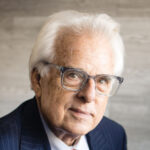A news story reports that Jahi McMath, declared dead by the State of California, is being maintained at a Catholic hospital in New Jersey. More, that she may be becoming responsive. From the San Jose Mercury News story:
KPIX reported that she is receiving round-the-clock care and has responded to commands, moving specific parts of her body when asked. Attorney Christopher Dolan, who represents Jahi’s family, would not comment on her location.
In a statement to Bay Area News Group, he said that “Jahi’s physical condition is much better than when she was at Children’s Hospital,” adding that predictions that her organs would shut down and her heart would cease pumping had not come to pass. “I have seen Jahi and none of what Children’s (Hospital) said would happen to her as inevitable physical death has occurred. I have seen much more movement in Jahi, response to her mother’s touch and voice and what appears to be movement in response to voice command.”
We should be cautious here. But if these changes are indeed occurring–which will need to be demonstrated by objective medical testing–she isn’t dead.
What might that mean?
First, that she would become entitled to receive benefits for her care. To prevail, in my opinion, Jahi’s mother would have to prove evidentially that her daughter is alive by demonstrating, for example, that she has reflexes that originate in the brain.
Second, it would challenge the concept of brain death in the minds of many, forcing the medical community on the defensive. At the very least, I think it would lead to universal and rigorous mandatory criteria for its determination, something now sorely lacking. It might also require application of the more sophisticated brain scanning techniques now coming on line, which have shown that many people thought to be in a persistent unconscious condition, are actually aware.
Third, it would create a nightmare firestorm for Children’s Hospital of Oakland, not only legally but with regard to the trust it is held in the community.
Fourth, it would validate Judge Evilio Grillo’s wisdom–achieved via a settlement–that sometimes it is better not to coerce dissenting families in medical controversies to give up their quest for the “miracle.” In this regard, it would also validate the work of Bobby Schindler and the Terri Schiavo Life and Hope Network, who and which, stuck their necks out pretty far in this case to help Jahi’s family.
Fifth, and ironically, it would empower those bioethicists who want to expand organ harvesting from the dead to the profoundly cognitively disabled. Dead isn’t what matters, these advocates say, but the loss of “personhood.” They would make Jahi’s case as a battle flag to pressure society to stop worrying about brain death and start harvesting unquestionably living people like Terri Schiavo.
But let’s not get ahead of ourselves. The bodies of young people who are brain dead sometimes last far longer than those of adults. The key question is whether she has demonstrable brain function. If so, there will be hell to pay.
Author Profile

Latest entries
- BlogJanuary 27, 2015Ready or Not: Here Comes 2015 in Bioethics!
- BlogOctober 20, 2014A Case of Surrogacy’s Gordian Knot
 BlogAugust 19, 2014Transhumanism’s Eugenic Authoritarianism
BlogAugust 19, 2014Transhumanism’s Eugenic Authoritarianism- BlogAugust 13, 2014Suicide Cult Pushes Home Made Suicide Kits

